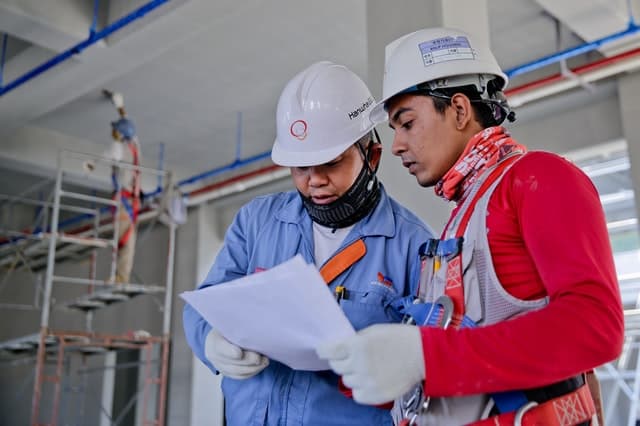By Ashley Preen
December 9, 2019
Before understanding what exactly one requires to do being inside IR35, it is essential to know what IR35 is. Since it is a relatively new UK legislation, many UK companies find it challenging to understand the whole ruling as well as the key terms associated with it. This article will cover a comprehensive guide for every UK citizen, the meaning of words “inside” and “outside” and top tips for those who currently lie inside IR35.
It is a UK tax legislation that shall come into effect from April 2020 and impact contractors. The bill was introduced to cover a problem in the national tax system where workers have been observantly setting up limited company status to avoid paying taxes. This way, the contractor assumes an employee and employer relationship and gets taxed accordingly. Such contractors are called “deemed employees”.
The IR35 in the UK helps identify these deemed employees and pull strings of accountability. It ensures that contractors pay taxes according to their employment structure. The legislation also lends an impact on PSCs (personal service companies), which refers to limited companies with a sole trader or shareholder who offers their services to the company.
The UK government understood that contractors were getting away by paying through a corrupt tax system. They were able to reap a substantial portion of their income as profits and pay minimal tax to it, and as a matter of fact, this taxation sum is lower than income tax.
HMRC in the UK believes that this approach comes under the umbrella of “tax avoidance”. It says, “bending the rules of the tax system to gain a tax advantage that Parliament never intended.” Former Prime Minister, Gordon Brown enforced this ruling back in 2000 while being the Chancellor of the Exchequer.
Since then, contractors taking the disguise of employees have been quickly paying taxes according to the status of employees. They do not get entitlements of typical employees such as holidays, sick pay, or pensions. Those who have been in criticism of IR35 point out these factors and call it “unfair”.
It works in a way that HMRC evaluates your contractual employment status. If you are to be found working as a self-employed individual and described as “outside IR35” and in reality, your nature of business is providing services to your clients, then you will be described as “inside IR35” and will require to pay the missing sum of taxes to HMRC. Not just tax, there would be penalties and interest levied.
HMRC in the UK is very active in such matters. You can be investigated and traced back to as far back as six years, and if you are found non-compliant, you will need to bear the financial repercussions of it.
If you come under the status of outside IR35, then you are taken into account as a self-employed professional in terms of taxation. You have the liberty to pay taxes as per your requirements and in the most efficient way, which is a mix of dividends and salary that you collect from your company.
Every contractor is working under outside IR35 needs to make sure that their business and personal taxes are paid timely and calculated accurately.

If you come under the bracket of inside IR35, then you are an employee in terms of taxation. You will need to pay a tax equivalent to the rate of an employee in the same bracket. Employment and tax legislation are separate. You may be known as an employee in terms of taxation, but you will not be entitled to the benefits brought in employment rights.
Contractors who are “inside IR35” need to pay NICs (National Insurance Contributions) as well as income tax on revenue. Private-sector contractors pay this as a “deemed payment”, which remains a payment you have to make to HMRC after each tax year, also adding the extra sum of tax that you have to pay under the status of “inside IR35”. Contractors may find calculating the right amount of “deemed payment” a very complicated step. This is where contractors need professional accounting services to seek guidance.
Whereas, contractors who still come under “inside IR35” in the public sector do not need to figure this out. They have an agent that pays a fee on their behalf and cuts the NICs and income tax payments from your generated revenue before it gets into your account.
The UK government introduced IR35 two decades ago, and the sole objective was to cub on “disguised employment”, but the government still believes that contractors abuse the system. Since 2017, the public sector’s client got the responsibility for addressing the IR35. Through this system, the tax liability transferred from the contractor to the agent or fee payer.
The same ruling will be introduced in the private sector, impacting the medium and large businesses, effective from 6th April of 2020. Contractors will still be responsible for establishing their IR35 status and pay taxes if working under the “small” category in the private business sector by HMRC. According to HMRC, the definition of a “small” company is quite specific. It defines as a company that does not go beyond the criteria of having an annual turnover of more than £10.2 million, balance sheet total of more than £5.1 million, and an employee count of more than 50.
This reform continues to be seen as a controversy because clients do not have experience regarding working out status decisions. In the public sector, it leads to inaccuracies in the assessments of IR35 as public sector parties took decisions intending to secure the liability that now incurs on them.
It is recommended that you get your contract thoroughly reviewed by a solicitor or specialist. The specialist will likely advise you by viewing your business practices and make sure that the agreement meets all factors of the IR35. Make sure that all of your documents are present with you in the best condition possible.
This will be key in facing the HMRC. If you can provide a substitute instead of your place, then you will have a genuine business case. You should be kept in mind that while contractors can provide a replacement, companies also need to accept the substitute. The condition is that the alternative that you elect in your place must have the necessary skills and requirements for representing you. However, the contractors choose to pick their substitutes is a decision totally up to them.

You need to demonstrate that you bear the full account of your business. You need to show that you pay for all business expenses and are willing to take financial risks just as how a genuine company does.
Get all stationery and marketing materials made in the name of your company. Get letterheads, business cards, stationery, and company website to make your enterprise have a proper business status.
You need to make noise about maintaining compliance in your business practices. Your letter should give the impression that you observe legitimate business practices. HMRC needs to seek confidence in you, and if you offer the simplicity of having a confirmation regarding maintaining compliances, it will work tremendously in your favour. Such a letter would reveal all the facts.
Many contractors would be tempted to increase their prices, just so that they can justify the costs that are being charged due to being inside IR35. Which has happened extensively in the public sector, and independent workers find it an important step. However, this can be a harmful business practice, and your clients may find it off-putting. But if you can justify this cost and come into a good agreement with your clients, then increasing prices is a highly recommended step.

Small and medium-sized companies in the private sector can encourage contractors to operate via the channel of umbrella companies. Contractors can become employees of the umbrella company. This way, they will be in a critical position to avoid IR35 legislation. Umbrella companies are specialized corporations working for many purposes, including this one. However, it is also essential to keep in one’s mind that apart from the tax expense, one has to cover the consultation and services fee charged by a specific umbrella company.
In many cases, you are not supposed to do anything. If as a contractor, your client believes that your services reflect like employment and not self-employment, you can continue to operate via the status of your service and remain inside IR35 legislation. But this will also mean that you have to bear a significantly high financial burden and might be a painful blow to your business. If you have any commercial backing, this option is good to go.
Contractors remain fearful of the IR35 legislation, and this is because there are misconceptions regarding tax legislation. The biggest one remains that it is a move to drive them out of business and would skyrocket the rate of unemployment across the UK. Being inside IR35 would not be as damaging as being cornered into PAYE, and this is something you must avoid as a contractor.
Finally, the most inventive step in this regard would be to acquire the services of a qualified professional or work with a suitable accounting firm that can advise you on this step. Many contractual workers in the UK are taking this step due to intricate details and complexities associated with the whole IR35 tax legislation that is soon to come into effect in April 2020.
Accountants specialize in these forms of services, and they would always be willing to help you out in every possible scenario. It is inevitable that you cannot have basic knowledge of taxation and how the HMRC works in this regard, which is why pursuing a solicitor would be the ideal choice.
Throughout the UK, contractual work is big business, and the market continues to value these skilled workers who offer their services at flexible prices. Financial experts understand that this new legislation might only be a small setback, but the market is likely to recover from it and find a middle ground soon enough. However, with the effect of this legislation, contractor growth plans might take a hit as they will have to remodel their financial systems and recover from the expenses that they will have to bear now.
It is still too early to comment on the implications of this legislation. Many scenarios are being speculated, and the UK government is doing its best to find common ground. The government cherishes its community of contractual workers for their skills and contribution to the local economy. By no means, it is designed as a step to drive them out of business or discourage future workers from stepping into contractual employment.

At this point, contractors need to be responsible and stay on top of the news. You need to have maximum knowledge about everything that is going to happen.
Evaluate each step taken by the government and determine its outcome to your business. Take business decisions based on your insights and theoretical analysis of the consequences of each level. The issue of Brexit is also playing a fundamental role in the shift in economic practices across the UK. Workers will still have more opportunities and should explore for ways by which they can fulfil the requirements of HMRC as well as keep their contractual ventures running profitably.